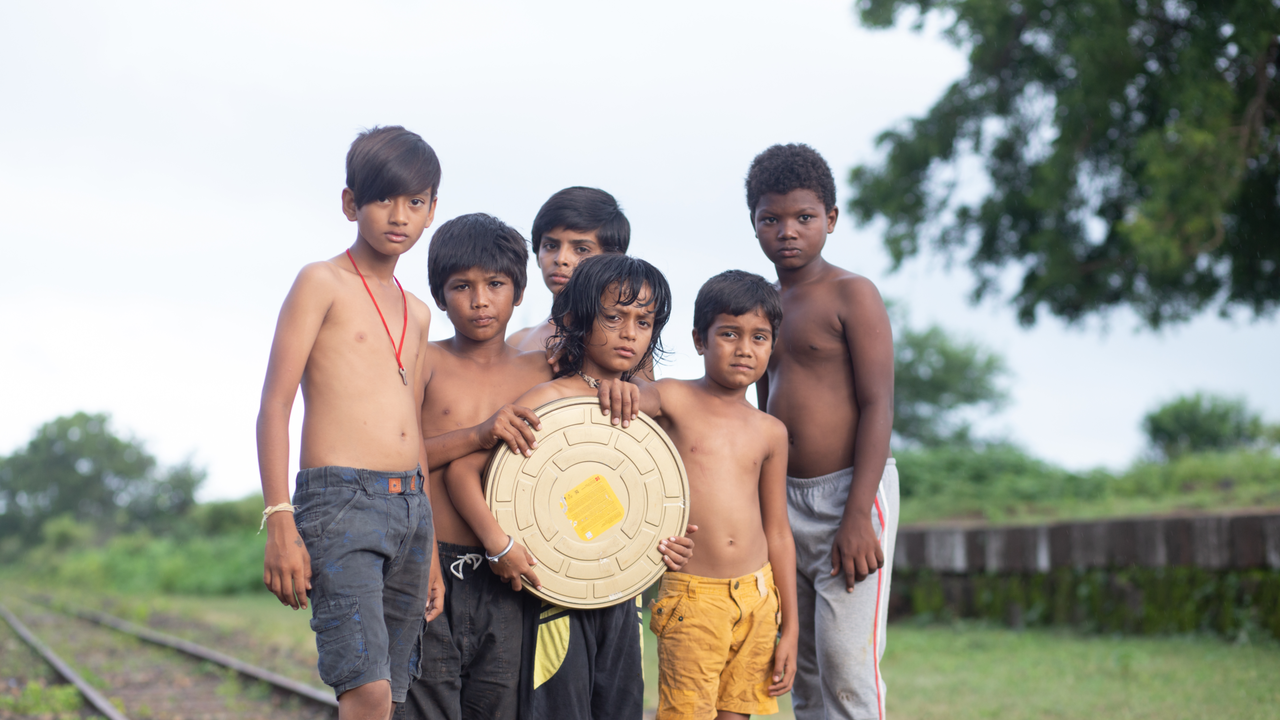
The question of why we are here has been brought up a lot in movies. Nine Days, the stunning debut feature of music video and commercial director Edson Oda, asks a different, more piercing question: Why do we deserve to exist? It sounds cynical, if not outright callous, but then again, we never chose to be alive. What if we were someone else? What if we never were in the first place? Plus, if there is someone out there running the whole show, why did they give us the gift of life? In one of the most impressive and thought-provoking pieces of speculative fiction I’ve seen recently, we get a vision of the beyond where the ones with the power over the future of humanity are, in fact, only human.
Will (Winston Duke) resides in a house in the middle of a desert, quite literally removed from the rest of the world. Sitting in front of stacks of CRT TVs depicting the points-of-view of a number of humans, Will takes notes on what he sees, and records what he watches onto VHS. Occasionally, he chats with his friend Kyo (Benedict Wong). Suddenly, one of the TVs…goes dark. Not long after, a group of new visitors show up at Will’s doorstep to be interviewed. They are visitors, but they aren’t human…yet. They are new souls being considered for the opportunity of life. In nine days, one of the souls will become a human newborn and fill the vacancy on the TV wall. However, for the souls who do not make it through the series of tests Will has planned, their existence will be erased, and these nine days will be all that they experience.
It’s the kind of job that is typically reserved in fiction for all-powerful beings whose awesome powers typically give them little concern over those they watch over. However, Will is not a god. In fact, he is human. Or, at least, he was. Will is dead, and as a member of the deceased, he has the experience to determine who passes muster as a potential new life. He has also retained his memories, thoughts, feelings, and emotions, which aid him in his decision. After all, who better to decide who experiences humanity than a former human themselves…right?

The film ultimately focuses on a small number of candidates: Mike (David Rysdahl), Alexander (Tony Hale), Maria (Arianna Ortiz), Kane (Bill Skarsgård), and Emma (Zazie Beetz), each with a distinct personality. (Fans of Hale’s comedy work will definitely find a lot to like in this film.) What quickly becomes apparent is that the appearance of free-spirited Emma has had an impact on Will, whose role as arbiter is shaped by his own experience as a living person. Of course, that also means that the souls themselves are dependent on whether or not they fit Will’s definition of who is worthy of life….and he doesn’t take the experience of living lightly.
To go into too much detail would be criminal, as not only is Nine Days is one of the most powerful cinematic experiences I’ve had recently, but also accomplishes a massive amount of world-building on a surprisingly small scale. Every one of the main characters feels fleshed out, and it’s likely every member in the audience will have their own opinions on who they’re rooting for. Perhaps you may even see yourself in some of the characters. Without giving too much away, Oda also delivers some emotional set-pieces so mesmerizing I don’t even want to describe them here. If you didn’t know he worked on music videos and commercials before, you probably will by the end of this film. (Furthermore, no death scene in film history prepared me for the elimination of unborn souls.)
The production design and the characterization extend further to the TV wall. It isn’t just a mere set decoration with B-roll footage. Oda makes it clear that these are human lives, and some of them end up getting bits of character development themselves, almost as if they were part of their own movies we never get to see all of. This film runs nearly two hours minus credits, and it uses that runtime well. Between Will, Kyo, the souls, and even the micro-arcs on the TVs, there’s a lot of movie here.
Not only is Will’s power over the course of our reality a major part of the dramatic core of the movie, but so are the consequences. With multiple possibilities, what do you do when the soul you picked doesn’t work out? Whoever gets picked won’t exist in a vacuum. We’re all interconnected, and we don’t know how their lives will affect the lives of others. Further adding to the world-building are the higher levels of the film’s world that are implied. When asked if he’s God, Will responds he’s just a “cog in the wheel.” This film raises a lot of questions, and I won’t tell you how many are answered. Perhaps the film’s ambiguity may be a good thing, as the audience is left to interpret things on their own. This is a film that mesmerized me, threw me through an emotional wringer, and has stayed with me ever since I saw it. I’ve said a lot, but I really want you to experience this film for yourself. You won’t see anything else like it right now.






